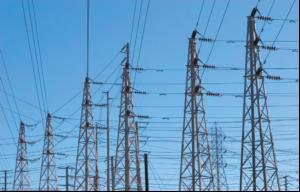EDF Energy Networks is urging businesses involved in building and scaffolding to be extra vigilant around electricity supply equipment as better spring weather brings an upsurge in construction projects...
More than a doEDF Energy Networks is urging businesses involved in building and scaffolding to be extra vigilant around electricity supply equipment as better spring weather brings an upsurge in construction projects.
More than a dozen people are killed and more than 300 people injured each year by coming into contact with electric cables and equipment. Last November two building workers were killed when a tipper truck touched overhead power lines. The two men were in the back of the lorry as it delivered supplies to a site in Cheshire.
EDF Energy Networks says many accidents could be prevented with a better understanding of the dangers of electricity.
With this in mind, EDF Energy Networks has issued a series of safety tips for anyone involved in building work.
With more than 170,000 kilometres of underground cables and overhead lines making up their electricity network in London, the East of England and the South East, EDF Energy Networks says it's vital for anyone working on any kind of building project, large or small, to be aware of the potential dangers.
EDF Energy Networks cables and power lines can carry anything from 230 volts to 132,000 volts. But even coming into contact with the lowest voltage cables - which are used to deliver electricity into homes and small buildings - can be fatal.
"This is a time of year when building work really gets under way in earnest," said Nick Rogers, head of health and safety for EDF Energy Networks. "In the rush to get things moving, some basic precautions may be forgotten…with terrible consequences".
"We would urge anyone working on any kind of building project to be keenly aware of the precautions needed to work safely." Before work starts on any site, EDF Energy Networks advises the following: Have a good look around the site and take note of anything that might have an electricity supply to it Obtain plans from all the utilities - gas, water, sewage, electricity and telecommunications - and get a copy of the Health and Safety Executive's publication HSG47 'Avoiding danger from underground services' [2001]. It gives detailed guidance to contractors on avoiding damage to utility connections Guidance on Avoidance of Danger from Overhead Electric Power lines can be found in the Health and Safety Executives Guidance Note GS6. Where clarification is needed you should contact EDF Energy Networks well in advance If any electricity services are identified on the site, consider whether they need to be disconnected or relocated. If this is the case, contact EDF Energy Networks well in advance of any work being undertaken Particular consideration needs to be given to existing buildings which may still have live supplies inside them. If the building is to be substantially altered, or subject to any kind of demolition work, then it is not sufficient just to have the metering disconnected. The electricity supplier - the firm the customer pays the bill to - needs a request to remove the service back to the boundary of the site Remember to "look out and look up".
Every year there are incidents where machinery, such as trailers, tipping equipment, ladders, scaffolding and loaders, gets caught up or collides with overhead power lines. Electricity can jump across gaps so do not allow equipment to get too close If there are any doubts whether overhead lines are for telephone services or electricity always assume that they are power lines and are live If you are in the listed areas and do accidentally strike an underground cable or make contact with an overhead power line then contact EDF Energy Networks on these numbers: London: 0800 028 0247 East of England: 0800 783 8838 South East 0800 783 8866 In addition: Call the emergency services on 999 if there is a risk of fire, someone is injured or there is a risk to others Keep everyone away from the immediate area. Cables or lines that appear to be dead can be re-energised without warning If anyone is inside a vehicle that is touching an overhead power line or an underground cable, tell them to stay inside. If this is not safe - for instance, if the vehicle catches fire - tell them to jump clear. Do not touch the vehicle and run well clear with leaping strides Do not approach the area until you are told it is safe to do so by an EDF Energy Networks representative In addition to the danger to people, if a power line or cable is damaged then part of the network has to be disconnected to make the area safe and to carry out repair work. This could result in the power supply to many users - including hospitals, businesses and schools - being interrupted.
If you would like further information or someone from EDF Energy Networks to speak to you or your workforce please contact the EDF Energy health and safety team at: PublicSafetyPublications@edfenergy.com


